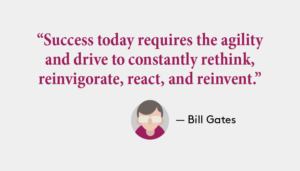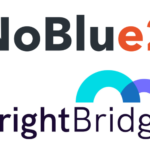For many companies, integrated ERP (Enterprise Resource Planning software) is a valuable tool for reducing business costs, eliminating duplicated work efforts across multiple areas via one unified system. Combine this with increased visibility into task performance, real-time reporting, and remote access via the cloud and the financial benefits are very clear.
These are all solid reasons for a business of any size to adopt integrated ERP – especially cloud-based Enterprise Resource Planning software – but efficiencies alone do not necessarily subsidise revenue. Nowadays, companies in the marketplace are using ERP systems strategically to improve sales, fortifying their business from both a logistic and marketing perspective.
Using integrated ERP to improve sales – Productivity, people and pricing
When your business model’s primary offering is providing products and/or services to paying customers, there’s no evading the importance of an effective sales process. It doesn’t matter how great your product or service is: it’s not always about what you’re selling, it’s how you sell it.
Keeping a close eye on productivity
The responsibility for sales productivity does not lie solely with the sales representative; it is the role of the sales manager to ensure the team is performing to an optimal level and communicate any areas in need of improvement – both to the team of reps and to higher levels of management who can make informed, reactive business decisions.
If sales productivity is to be successfully addressed, CIO’s need to equip their sales managers with the right technology. Most good CRM software allows managers to observe exactly what their team is doing on a granular level, whether it is in the cold calls the reps have made, the meetings they have attended, the tasks they have accomplished, or what they have planned in their calendar.
However, unless their CRM is integrated with their other business processes, then sales managers are unable to dig deeper. CRM that comes as part of ERP software – or has been integrated with it – allows managers to pull together data from across the entire organisation, and run detailed reports such as sales order vs. invoice reports and conversion rates, which can only be achieved by linking financial software to CRM software. This process also allows clarity into quoted values vs. actual cash sale values to ensure GP and margins are maintained.
Many organisations employ multiple sales teams to represent specific products or services, each one with its own set of sales metrics and performance targets. Effectively managing these multiple teams can be a real headache without the right software in place. Integrated ERP enables managers to easily compare team-specific data – such as profit-per-sale vs. costs, performance of individual team members, and the time of day/week for optimum performance – in order to establish how to best augment sales across the entire company.
And if the ERP software is in the cloud, then the sales manager is given total visibility of this information whenever and wherever they need it in real-time, making it easier to identify areas within the sales process that may be hampering success and then implement an appropriate solution sooner rather than later.
Taking care of the people who buy regularly
Did you know that 80% of your sales this year will come from just 20% of your existing customers? If you’ve been around in business long enough then you should already be aware of this statistic – also commonly referred to as the “80/20 Principle” (source. Entrepreneur).
Regardless of your position as either a B2C or B2B company, it’s long-term relationships that drive the majority of yearly sales. Conversion rates for people who have purchased from you before can be up to 9 times greater than first-time buyers (source. Marketing Metrics), whilst the average order value tends to be higher also. That’s according to a 2015 study by RJ Metrics.
Knowing everything about this 20% and focusing your marketing efforts is key to maximising sales, which can be achieved through ERP and CRM integration. When your sales team has access to customer information – pertaining to everything from previous order history to past client interactions, how much they paid, their payment terms, their preferred marketing channel, and the products / services they’re most interested in – it enables representatives to strategise a sales process and effectively reach out to buyers on a more personalised level. It also enables management to observe (see productivity, above) and invest further resources into strategies that have proven to be most successful.
Another benefit of system integration is being able to view all key business areas including inventory, which is not directly related to the sales process but is equally important. Without this functionality, sales representatives are not able to easily check if existing stock levels are sufficient, or see if more stock is due to improve ease of order and secure the sale.
Likewise, delivery to some customers may be more convenient (quicker and cheaper) from depots nearer to a particular customer’s location, so remote access to shipping and inventory information via the cloud is more than just advantageous; it’s essential to exceeding the expectations of valuable customers.
Competitive and strategic pricing
ERP data can be used to provide sales representatives with suggestions for new pricing structures on a case-by-case basis.
Whilst setting the price of products and services is not the primary role of your sales team, access to ERP data variances can be used to vary pricing for unique customer situations. Conversely, this strategy also allows businesses to push higher prices, whilst staying competitive. It is of course paramount to ensure that limitations on price variance are set to make sure any margins are protected.
Use of pricing groups and price break values enables a quick and easy view of best value offerings to your customer base, adding a valuable tool in your sales team’s arsenal.
We’ve already mentioned the added advantage of being able to access off-site shipping data to provide quicker and more cost-effective delivery to clients. Well, the same principle applies across a broad range of factors – such as supply, demand, location, and customer history – across all sectors from retail to manufacturing. If remote users are given access via the cloud, it enables sales to react in real-time to national and global changes in the marketplace.
Do you have anything to add? Leave your thoughts on this article in the comments below.
NoBlue provides NetSuite’s cloud-based ERP software to businesses across the UK and Europe. If you would like to discuss how the cloud could benefit your business, please get in touch.[/vc_column_text][/vc_column][/vc_row]










